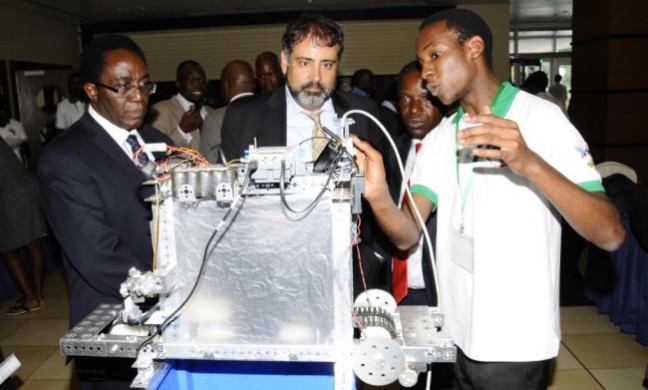The Gates foundation and its Grand Challenges partners are now accepting applications for the following grant programs – for more information please visit the grant opportunities page at www.grandchallenges.org
1. Grand Challenges Explorations, an initiative to encourage innovative and unconventional global health and development solutions, is now accepting grant proposals for its latest application round. Applicants can be at any experience level; in any discipline; and from any organization, including colleges and universities, government laboratories, research institutions, non-profit organizations and for profit companies.
Proposals are being accepted online until May 13, 2015 on the following topics:
• Addressing Newborn and Infant Gut Health Through Bacteriophage-Mediated Microbiome Engineering
• Explore New Ways to Measure Delivery and Use of Digital Financial Services Data
• Surveillance Tools, Diagnostics and an Artificial Diet to Support New Approaches to Vector Control
• New Approaches for Addressing Outdoor/Residual Malaria Transmission
• Reducing Pneumonia Fatalities Through Innovations that Improve Pneumonia Diagnosis & Referral of Malnourished Children
• Enable Merchant Acceptance of Mobile Money Payments
Initial grants will be US $100,000 each, and projects showing promise will have the opportunity to receive additional funding of up to US $1 million. Full descriptions of the new topics and application instructions are available at www.grandchallenges.org
2. Saving Lives at Birth: A Grand Challenge for Development has launched its fifth round for innovative prevention and treatment approaches for pregnant women and newborns in poor, hard-to-reach communities around the world. Saving Lives at Birth partners will fund transformative approaches that cut across three main domains: (i) science & technology, (ii) service delivery, and (iii) demand-side innovation.
The application deadline is March 27, 2015. Details on how to apply for a grant can be found at http://response.notifications.gatesfoundation.org/t?ctl=4C60472:19A41A91901EAFF6444C43CFDE96D3145B81EAEAF7CACE1D&
3. All Children Reading: A Grand Challenge for Development has launched two grant opportunities:
– As part of the Technology to Support Education in Crisis and Conflict Settings Ideation Challenge, it is seeking technology-supported approaches to provide basic education in one or more of the following situations: health crisis, natural disaster, and conflict zone. Proposed solutions should be usable within the first six months after the onset of the crisis or conflict and be usable within the context of a developing country.
The application deadline is March 30, 2015. Details on how to apply can be found at http://response.notifications.gatesfoundation.org/t?ctl=4C60473:19A41A91901EAFF6444C43CFDE96D3145B81EAEAF7CACE1D&
– The Tracking & Tracing Books Prize Competition is seeking innovations to track books destined for early-grade classrooms and learning centers in low-income countries and allow stakeholders, ranging from parents to Ministries of Education and donor agencies, to quickly and easily access tracking information.
The application deadline is April 1, 2015. Details on how to apply for a grant can be found at http://response.notifications.gatesfoundation.org/t?ctl=4C60474:19A41A91901EAFF6444C43CFDE96D3145B81EAEAF7CACE1D&
4. The Global Health Innovative Technology Fund (GHIT) as part of its new Grand Challenges Japan initiative has launched a Target Research Platform to fund bold ideas in drugs, vaccines, and diagnostics for a set of priority neglected infectious diseases. Applications must be from a partnership between Japanese and non-Japanese organizations.
The application deadline is March 13, 2015. Additional Information can be found at http://response.notifications.gatesfoundation.org/t?ctl=4C60475:19A41A91901EAFF6444C43CFDE96D3145B81EAEAF7CACE1D&
We are looking forward to receiving innovative ideas from around the world and from all disciplines. Thank you for your commitment to solving the world’s greatest health and development challenges.
The Grand Challenges Team

 General1 week ago
General1 week ago
 Natural Sciences2 weeks ago
Natural Sciences2 weeks ago
 Agriculture & Environment1 week ago
Agriculture & Environment1 week ago
 Health2 weeks ago
Health2 weeks ago
 Health2 weeks ago
Health2 weeks ago



